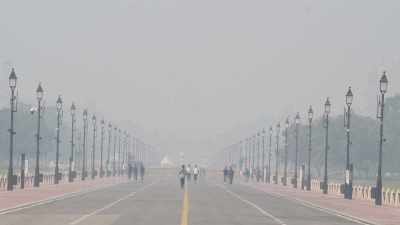Centre’s ‘special care’ for NE begins to fade?
The first shock came in the form of removal of Arun Shourie from the ministry for development of North-Eastern region and replacement by C.P...

The first shock came in the form of removal of Arun Shourie from the ministry for development of North-Eastern region and replacement by C.P. Thakur. And next arrived the Union Budget termed as a ‘raw deal’ that has shocked the North-East again. The big question in the region now is: Is the Centre’s love for the North-East beginning to diminish? Leading the bandwagon is none other than Assam Chief Minister Tarun Gogoi, who has already dashed off a letter to the Prime Minister and the Finance Minister, expressing his reservations over certain new provisions in the Union Budget.
Gogoi has taken strong exception to the Centre’s extension of the North-East Industrial Policy of 1997 to other parts of the country. Urging the Centre to retain this policy exclusively for the North-East, Gogoi has said that New Delhi’s decision will only dilute the policy that was meant to redress the unique handicaps of the region.
“We have no reservation if some other incentives are given to other backward regions of the country. But the same provisions of the N-E policy should not be extended (to others),” Gogoi in his letter said.
Gogoi had earlier also gone on record saying that Jaswant Singh’s Budget could in no way help state’s like Assam achieve a 10 per cent growth as projected. It would be difficult even to achieve five per cent growth, he said. The industries ministers of all the eight states of the region too have separately written to the Centre against extending the N-E policy to the other regions, stating that this would result in taking away the benefits given to the region in a roundabout manner.
The Centre meanwhile has also withdrawn the benefit of excise duty exemption on certain items like cigarettes, pan masala and gutkha and other items containing tobacco in the North-East with retrospective effect from July 1999, much to the discomfort of the entrepreneurs who had set up such units taking advantage of the incentives that existed earlier.
“While it is a nationwide policy to withdraw benefits to units of tobacco-related products, withdrawal of excise duty with retrospective effect will lead to loss of credibility for the Centre’s policies altogether,” said Abhijit Barooah, president of the Federation of Industry & Commerce, Northeastern Region (FINER).
“Withdrawal of excise duty exemption benefits is one thing and giving it a retrospective effect is another. This decision has compelled us to wonder what is the guarantee of the existing benefits to other items two years from hence,” Barooah said.
Budget has also withdrawn the benefits of excise duty exemption on products manufactured by the four refineries in Assam with a retrospective effect. While the Numaligarh refinery is the lone refinery to have been granted continuation of 100 per cent excise duty exemption, the other three refineries—Bongaigaon, Digboi and Noonmati (Guwahati) are facing partial exemption of the benefits with retrospective effect from February 2002.
In effect, it would now mean that the three refineries and the cigarette, pan masala and gutkha units (since closed down) would have to refund the exempted amounts. Industry sources here said the tobacco-related units together would have to return between Rs 300 and Rs 400 crore to the government.
“There is every possibility that prospective investors from outside the region, who had just started showing interest in the Northeast would get wrong signals,” FINER president Barooah pointed out. It is also interesting to note that the budgetary allocation for the department for development of North-Eastern region (DONER) has also been hiked by only a paltry sum of Rs 50 crore. The allocation for the new financial year is Rs 1,070.72 crore against Rs 1,020.72 crore for 2002-03. Similarly, the budgtary allocation for North-Eastern Council (NEC), the nodal organisation for inter-state developmental projects in the region, has also witnessed a nominal hike from Rs 355.01 crore to Rs 430.30 crore.






- 01
- 02
- 03
- 04
- 05

























